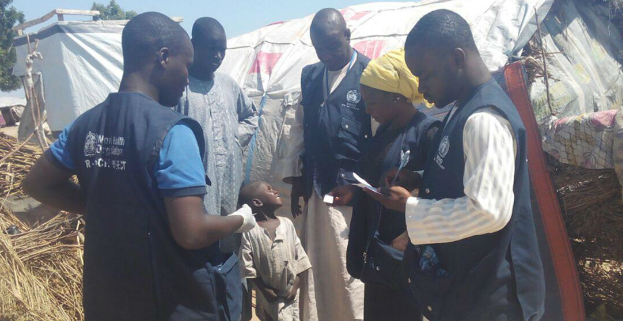Last week, the federal government and UNICEF announced an outbreak of measles in the north-east, mostly occasioned by the seven-year crisis in the region.
There were so many areas that were hard to reach, making it difficult for health workers to administer vaccines to vulnerable children.
According to UNICEF, insecurity limited vaccination efforts in the states of Adamawa, Borno and Yobe. As a result of this, there were approximately 25,000 cases of measles among children in 2016, and 97 percent of the cases were in children below ten while at least a hundred died.
While in places like Lagos, vaccination against measles might be taken for granted, with the house-to-house visit of attendants and school coverage of prevention of diseases through vaccines, it is important to remember that Nigeria is a state with only about 50 percent coverage of measles vaccination.
Advertisement
Here are some key facts on measles:
According to UNICEF, children from crisis-torn states and famine regions are more likely to get severe measles because they are poorly nourished, sometimes lacking insufficient vitamin A and have weakened immune systems. As much as 10 percent of the population in places with high level of malnutrition die.
Death from measles are caused by complications arising from the disease like dehydration, severe diarrhoea, severe respiratory infections such as pneumonia, blindness, encephalitis (an infection that causes brain swelling).
Advertisement
Measles can also trigger severe malnutrition or disseminated tuberculosis infections.
The highly contagious virus is spread by coughing and sneezing, close personal contact or direct contact with infected nasal or throat secretions.
The first symptoms of measles include a high fever in about 10 to 12 days after exposure to the virus. The fever usually last for four to seven days.
Other factors to watch out for are a runny nose, cough, red and watery eyes and smallish white spots inside the cheek. After that, a rash occurs that quickly spreads all over the body.
Advertisement
Prevention of deaths arising from complications
With good nutrition, sufficient water intake and vitamin A supplementation, deaths can be avoided. WHO also recommends treatment of diarrhoea with the recommended oral rehydration solution – that replace lost fluid and other essential elements.
WHO recommends reaching all children with two doses of measles vaccine as the standard for all national immunization programmes. In countries with ongoing measles transmission, the first dose of measles vaccine is recommended to be administered at 9 months of age and the second between 15 – 18 months of age.
Advertisement
Add a comment






